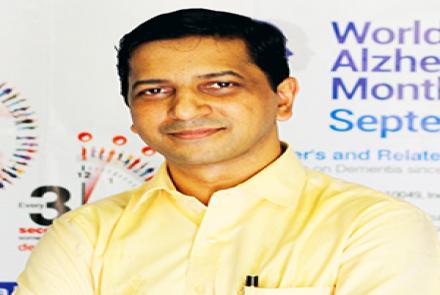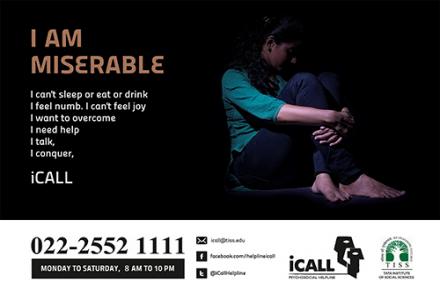
Symptoms like weight loss, memory loss, weakness, and fatigue should not be mistaken as a sign of the"normal aging" process. Dr. Shital Patel explains 12 common but misleading symptoms in the elderly and why you should seek a doctor's opinion instead of ignoring them.
Symptoms in the elderly can have very different causes than they may have in a young person. Many symptoms in the geriatric population may be masked by concurrent chronic ailments, injuries, age-related physiological changes, polypharmacy, or simply by the normal process of aging. If ignored or not investigated thoroughly, the underlying causes of these symptoms can lead to serious or even fatal health consequences. It is thus critical to notice these vague warning signs, identify the actual causes and address them immediately.
हिंदी में पढ़ें: 12 बुजुर्गों में अकसर दिखने वाले ऐसे लक्षण जो गंभीरता से लेने चाहियें
- Sudden confusion or delirium. This can be due to several reasons such as a stroke, low blood sugar levels, dehydration (poor water intake), head injury, side-effect of a drug, etc. Dehydration can also result in electrolyte imbalance, especially when it is caused by vomiting or diarrhea. In such cases, just increasing water intake is not sufficient. You need to add Oral rehyradation salts (O.R.S) or salt and sugar to the water. Recently, UTI (Urinary Tract infection) has emerged as one of the most frequent causes of confusion in the elderly. Delirium is quite frequent during an illness, or hospitalization or during the recovery phase. It is found to be the most common complication in hospitalized patients above the age of 65. If left untreated, it can lead to poor recovery and higher chances of mortality.
- Generalised abdominal pain can be due to various abdominal issues which can be acute, sub-acute or chronic. These include appendicitis, hernias, ulcers, liver or pancreatic issues, obstruction, etc. This pain may also be due to a more serious condition like colon cancer. Getting a thorough history from the patient is essential to narrow down the diagnosis.
- Weight loss that is unintentional is always a cause for concern. Unwanted weight loss is defined as decrease in more than 5% of body weight within 6 to 12 months. Malnutrition is cited as the most common cause for weight loss in the geriatric population; however it is important to note that malnutrition can be present even when there is no obvious weight loss. Social and psychological factors (like depression and alcoholism) should not be ignored when looking for causes of malnutrition. Many senior citizens live in isolation and survive on a “tea and toast” diet. Other causes may include - gastrointestinal problems, loss of taste, nausea, dental issues and malignancy. Weight loss leads to weakness and functional decline in daily life activities. Risks of falls, injuries, fractures, infections are higher for underweight persons, and their ability to recover is lower, thereby increasing their chances of mortality.
- Memory loss and some amount of forgetfulness are common aspects of aging. Memory lapses are worrying if they are disabling and affect daily activities, work and social life. In such cases, patients should be evaluated for dementia. Memory loss can also be reversible and may respond to treatment, such as impairment caused by head injury, emotional distress, alcoholism, Vitamin B12 deficiency, infection in the brain, certain medications, hypothyroidism etc.
- General malaise is the feeling of being unwell either emotionally and/or physically. Malaise can be due to psychological or physiological factors such as depression, fatigue, infections of the urinary or respiratory tract, and even cancer. Chronic conditions are often the root cause; these include anemia, arthritis, lung diseases etc.
- Fatigue or getting tired easily is often overlooked and remains untreated. The underlying causes of fatigue include a decrease in blood circulation and oxygen supply (such as COPD, heart conditions), a hormonal disruption (as seen in thyroid imbalance, malnutrition, diabetes etc.). Chronic conditions such as anemia, sleep disorders, joint pain and chronic fatigue syndrome can also lead to unexplained and prolonged fatigue.
- Constipation is seen to occur five times more in the elderly than the young adults. Some of the causes include low fiber diet, poor water intake, lack of exercise, prolonged best rest, bowel problems, certain medications etc. Several metabolic conditions can also manifest as constipation. These include heart disease, diabetes, hypothyroidism, low blood potassium, high blood calcium, overactive parathyroid glands, nerve and muscle disorders etc. Over-use of laxatives can also lead to loss of normal bowel movements and dependency issues.
- Abnormal joint reflexes can indicate damage in the muscle, peripheral or root nerve or even the spinal cord. Reflex testing is one way to assess the functioning of the sensory and motor pathways. Peripheral neuropathy is the most common cause of absent reflexes and is often seen in patients with diabetes. Poor or absent reflexes can also be due to lower and upper motor neuron disorders, thyroid imbalance, etc. Brisk or above average reflexes are often seen of hypothyroidism, Parkinson’s, Multiple sclerosis, ALS and even anxiety.
- Headache is another challenging symptom because of its variable and complex causes. Primary benign headache causes include migraines, stress, dehydration, etc. Several diseases can also lead to headaches - such as cardiovascular diseases, high BP, Giant cell arteritis, brain lesions or mass, COPDs etc. Among the elderly, overuse of medication such as analgesics for chronic pain have also been associated with headaches.
- Depression is NOT a natural part of aging! If a person is showing signs of depression, this should be addressed. Depression can sometimes be due to hypothyroidism, side-effect of medications, chronic ailments, anxiety or hormonal imbalance. It is important to distinguish dementia from depression. It is likely to be depression and not dementia if the mental decline is rapid and patients have insight into their memory loss or confusion.
Click on the pic below to download a free E-book on managing challenging behavioural symptoms of dementia

- Heartburn or acidity is commonly due to certain food and beverages, over-eating, alcohol, stress and smoking. However, in the elderly heartburn should be evaluated for hiatal hernias, and weakened lower esophageal sphincter because these can often lead to Barrett’s esophagus, or even esophageal cancer. Other conditions that mimic heartburn include angina (chest pain), gallstones, ulcers, gastroparesis (nerve paralysis of the stomach), and inflammation of the lung or chest cavity.
- Weakness refers to a decrease in muscle strength and indicates a medical problem. Sudden onset of weakness can be due to cardiovascular event, acute infection, neuropathy or muscular pain. If the weakness is chronic or intermittent, it should be evaluated for muscular problems, depressive state, anxiety, hormonal or metabolic disorders, anemia, malignancy etc.
Related: Risks of Polypharmacy in the Elderly
References:
Unusual Presentations of Illness in the Elderly. Richard Besdine. https://www.msdmanuals.com/
Unintentional weight loss in older adults. Gaddey HL1, Holder K2. Am Fam Physician. 2014 May 1;89(9):718-22.
Age-Related Memory Loss. What's Normal, What's Not, and When to Seek Help. https://www.helpguide.org/
Atypical Presentations of Illness in Older Adults. Carla M. Perissinotto et al. Current Diagnosis & Treatment. 3rd edition, ch 7.
Constipation in the elderly. https://www.news-medical.net/health/Constipation-in-the-Elderly.aspx
www.healthline.com
Depression in the Elderly. www.psycom.net













